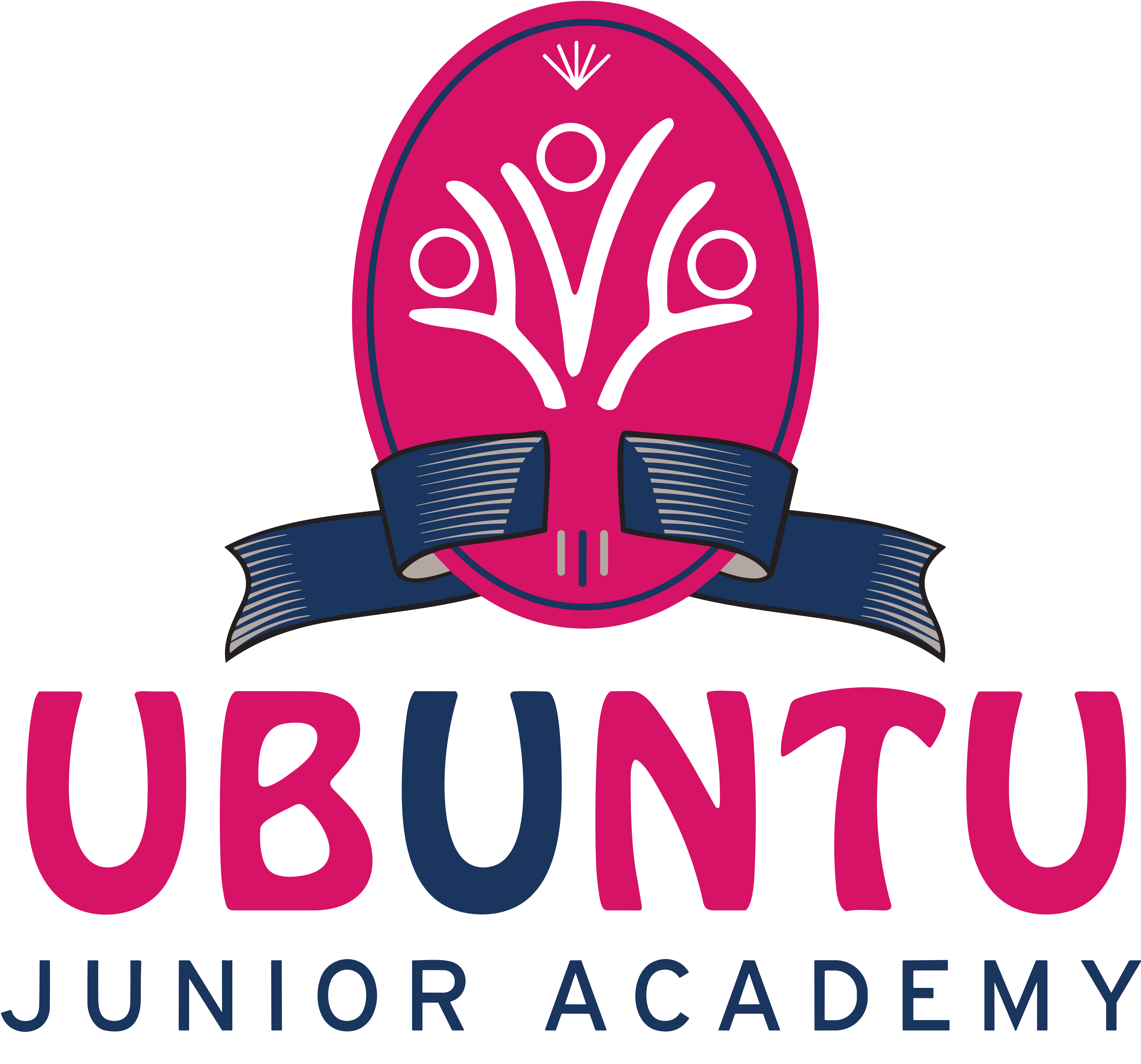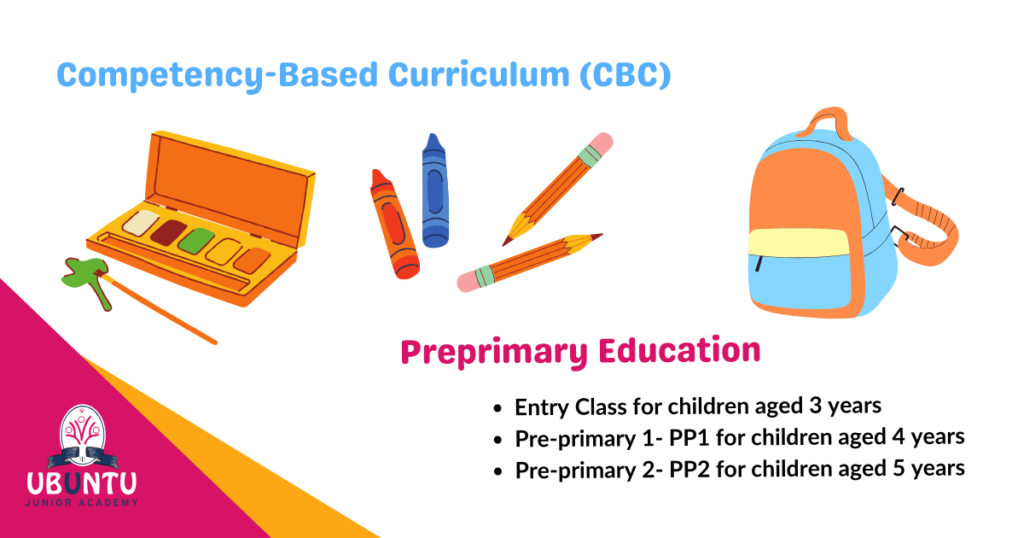Preprimary Education at Ubuntu Junior Academy
When Should a Child Join Pre-primary School?
Parents and guardians are encouraged to enroll their children in preprimary education at Ubuntu Junior Academy as soon as they reach the age of three years. However, we do insist that the child should be toilet trained to ensure a smooth and comfortable learning experience.
Levels of Preprimary Education
The first level of education under the Competency-Based Curriculum (CBC) at our schools is the pre-primary stage, where learners engage in their early years of education. Pre-primary education consists of two levels, but we offer an early entry class for students at the age of three years:
- Entry Class (Play Group): For children aged three years.
- Level I (Pre-primary 1 – PP1): For children aged four years.
- Level II (Pre-primary 2 – PP2): For children aged five years.
Learning Areas
At Ubuntu Junior Academy, we offer a holistic educational experience. The subjects we offer (referred to as learning areas in CBC) at the pre-primary level are:
- Language and communication
- Mathematics
- Environment
- Psychomotor (physical activity learning) and creative (Music, Art and Crafts)
- Religion
Languages Used for Teaching
We teach our pre-primary learners using English and Kiswahili. At this level, children learn to express their feelings, ideas, and opinions clearly and confidently in a language they understand. Additionally, our learners are prepared to begin their journey into reading and writing.
Expectations After Completing PP1 and PP2 Education
Upon completing their PP1 and PP2 education at Ubuntu Junior Academy, you can expect your child to:
- Gain appropriate communication skills, including listening, speaking, reading, and writing.
- Develop basic drawing and artistic skills, such as painting, coloring, weaving, shaping, bracelet making, and beading.
- Master counting numbers (1-50), basic measurement concepts, and the identification of Kenyan currency, as well as patterns.
- Learn about basic time concepts and daily routines.
- Develop an understanding of proper hygiene, sanitation, and nutrition, including skills like handwashing, dressing, nose cleaning, toileting, and feeding.
- Demonstrate an understanding of religious values and gain basic knowledge of Christian, Islamic, or Hindu religious education. Teachers are dedicated to helping learners appreciate people of different religious backgrounds.
Assessment at Pre-primary Level
Under the CBC, evaluations for pre-primary level schooling are done differently than traditional exams. Instead, assessments involve oral questions, observation, and documentation of activities and achievements. The learners’ progress in school will be evaluated based on the following criteria:
- Above Expectations: The highest score awarded when a learner correctly performs or completes all activities as expected in each learning area.
- Meets Expectations: The pupil correctly follows instructions, properly performs tasks, and completes most activities in each learning area.
- Approaches Expectations: The learner attempts to follow instructions but is inconsistent with completing tasks or activities in different learning areas.
- Below Expectations: Where a learner is observed to have major inaccuracies or an inability to complete tasks as instructed by the teacher.
CBC Learning Materials for Pre-primary Learning
Parents and caregivers of children enrolled in our pre-primary education are requested to provide pupils with easily available materials to promote learning and evaluation at school. These materials include:
- Natural and man-made environment resources.
- Videos, audio-visual, and digital materials.
- Print materials such as textbooks, workbooks, posters, and the Good News Bible.
- Weather instruments, pictures, photographs, and drawings.
- Newspapers, magazines, and newsprints.
- Charts, flashcards, soil, and threads.
- Domestic utensils, cloth materials, and containers.
- Toilet facilities and hygiene materials for activities like handwashing and teeth brushing.
- Improvised materials and equipment.
- Water, light, and sound sources, including drums, sticks, metals, beads, and feathers.
At Ubuntu Junior Academy, we are committed to providing a comprehensive and enriching pre-primary education experience for your child, ensuring they are well-prepared for their educational journey ahead.
You can read more about the lower primary education curriculum on the Kenya Institute of Curriculum Development (KICD) website or engage teachers in school.

